Illegal Paycheck Deductions Lawyer | Unlawful Wage Deductions
You work hard for your paycheck. After a long week, you expect to be paid fairly for every hour you put in. It is shocking to check your pay stub and see a lower number than you expected. You might find a surprise deduction for a broken piece of equipment, a cash register shortage, or a uniform fee you never agreed to.
Many employers count on you not knowing your rights. They assume you will accept these charges as a normal cost of having a job.
Here is the truth: Most of these deductions are illegal wage deductions. Your employer is not allowed to use your paycheck as a piggy bank to cover their business costs.
This guide will explain which deductions are legal, which are not, and what steps you can take if your employer is taking money that belongs to you.
Legal vs. Illegal Paycheck Deductions
The core of the issue is simple. Your employer must pay you the wages you have earned. The federal Fair Labor Standards Act (FLSA) and state laws set strict rules about what an employer can and cannot subtract from your pay.
What Your Employer CAN Legally Deduct
Legal deductions are usually non-negotiable or are for your benefit. They must be properly recorded on your pay stub.
- Taxes: Federal, state, and local income taxes.
- FICA: Social Security and Medicare taxes.
- Court-Ordered Garnishments: Payments for child support, alimony, or tax levies.
Voluntary Deductions: Payments you have agreed to in writing for your own benefit. This includes health insurance premiums, 401(k) or other retirement plan contributions, and union dues.
What Your Employer CANNOT Legally Deduct
This is where many employers break the law. Unlawful paycheck deductions are any subtractions that are for the employer’s benefit, not yours.
The most important rule under the FLSA is this: An employer cannot make deductions for their benefit if that deduction drops your pay below the federal minimum wage ($7.25 per hour) or cuts into your overtime pay for that week.
Even if you earn more than minimum wage, many states (like California and New York) have even stronger laws. They flat-out ban these deductions regardless of how much you make.
Common illegal wage deductions include:
- Cash register shortage deduction
- Deductions for “dine and dash” customers
- Broken equipment or tools
- Customer property damage
- Business losses or spoilage
- The cost of required pre-employment physicals or drug tests
If your employer is making you pay for their cost of doing business, they are likely breaking the law.
Common Examples of Unlawful Paycheck Deductions
Let’s look at the most common ways employers try to pass their expenses on to you.
Uniform Deduction Laws
Can my employer deduct from my pay for a uniform? This is one of our most asked questions.
The answer is usually no.
- FLSA Rules: Under federal law, your employer can make you pay for a uniform only if the cost does not drop your hourly wage below the federal minimum for that pay period. If you are a minimum wage employee, they cannot deduct a single cent for it.
- State Rules: Many states, including New York and California, are much stricter. They state that if an employer requires a uniform (like a shirt with a logo, a specific smock, or a branded apron), the employer must pay for it. They cannot legally deduct its cost from your pay.
- What About “Street Clothes”? If your employer just requires a generic “white shirt and black pants,” which are considered normal street clothes, they typically do not have to pay for them. But a required uniform, even one you could technically wear outside of work, must be paid for by the employer in many states.
Cash Register Shortages and Mistakes
Your shift ends. You count the drawer, and it is $20 short. Your manager tells you that money is “coming out of your check.” Is this legal?
Absolutely not, in most cases.
Federal law is clear: An employer cannot make you pay for a cash register shortage deduction, a business loss, or damage to equipment if that deduction takes your pay below the minimum wage.
Again, many states go further. California law, for example, bans deductions for cash shortages, breakage, or equipment loss unless the employer can prove the loss was caused by your dishonest or intentionally willful act. A simple mistake or accident is not enough.
Your employer cannot use your pay to cover:
- An accidental shortage in the cash register.
- A customer who paid with a bad check.
- A “dine and dash” walkout.
- A plate you accidentally dropped.
These are all costs of doing business. Your employer must bear that risk, not you.
Failure to Reimburse Expenses
Another common form of wage theft is the failure to reimburse expenses. If you are required to spend your own money to do your job, your employer must pay you back.
This is not a bonus. It is a legal requirement.
If these business expenses are not reimbursed, it is the same as a deduction from your pay. This can illegally reduce your real wage below the minimum wage.
Common expenses that must be reimbursed include:
- Mileage: Using your personal car for deliveries or to run errands for the company (this does not include your normal commute).
- Tools: The cost of specific tools or equipment needed for your job.
- Supplies: Office supplies, cleaning supplies, or anything else you must buy to perform your duties.
- Travel: The cost of hotels, flights, and meals for required business travel.
- Phone Bills: A portion of your personal cell phone bill if you are required to use it for work calls.
If your employer is not reimbursing you for these necessary expenses, they are effectively stealing from your paycheck.
What to Do If You Suspect Illegal Wage Deductions
If you see suspicious deductions on your pay stub or are paying for business costs out of your own pocket, you must take action to protect yourself.
- Gather Your Documents. Do not just quit. Your best evidence is your pay stubs. Save every single one. Also, keep any emails, texts, or sections of the employee handbook that discuss these deductions, uniforms, or expenses. Write down every time a deduction happens.
- Report the Issue (If You Feel Safe). You can try asking your manager or HR department about the deduction in writing (email is best). Ask them to explain the charge and cite the policy that allows it. Their response can be powerful evidence.
- Do Not Sign Anything. Employers will often try to “fix” their mistake by having you sign a new document that authorizes these deductions. Do not sign anything new without speaking to a lawyer. Your written consent is a key factor in these cases, and you should not give it away.
- Contact an Employment Lawyer. The laws around paycheck deductions are complex. An experienced wage and hour attorney can review your pay stubs, listen to your story, and tell you if you have a case. This is the single most effective step you can take.
How a Lawyer Can Get Your Money Back
When you hire an illegal wage deductions lawyer, you are evening the odds. Your employer has lawyers or HR teams; you should have an expert on your side, too.
Here is what we do:
- Free Case Review: We will look at your evidence for free and tell you exactly what your rights are.
- Calculate Your Full Damages: We will go through all your pay stubs to find every illegal deduction, unpaid expense, and any related unpaid overtime. Often, a case is worth much more than the employee first realized.
- File a Claim: We will handle all the complex legal paperwork, either in a lawsuit or a claim with the Department of Labor.
- Fight for You: Employers often pay up once they see a serious law firm is involved. We will fight to recover not only your stolen wages but also “liquidated damages,” which can double the amount you are owed. We also demand that your employer pay all your attorney’s fees.
You have nothing to lose. You have a right to every dollar you earn.
You Earned It. Do Not Let Them Keep It.
Your paycheck should reflect your hard work. It should not be a fund your boss uses to cover their mistakes and expenses.
If your pay is short, do not wait. You only have a limited time to file a claim and get your money back.
Contact us today for a 100% free and confidential consultation. We will listen to your story and explain your options.
Call us at (615) 242-0434 or fill out our online form to get your free case review.
Why Choose Us
Recovered
Cases Won
Lawsuits
Lawyers

